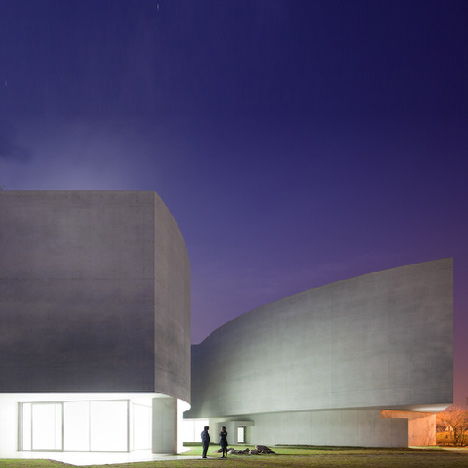
Portuguese photographer Fernando Guerra has sent us his photographs of this museum for modern art in South Korea by architects Álvaro Siza, Carlos Castanheira and Jun Sung Kim.
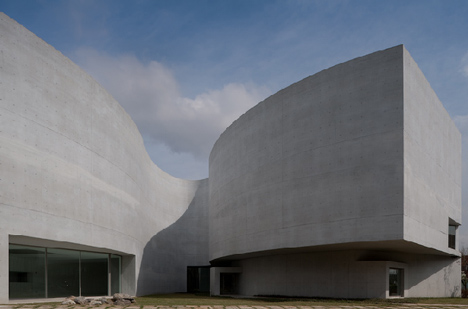
Mimesis Museum has a flowing concrete form that wraps around a central courtyard, and was inspired by a sketch of a cat that Siza drew upon arriving at the site.
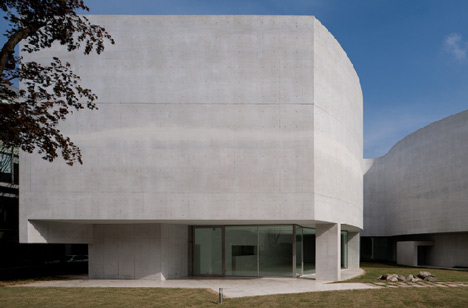
The three-storey building has services in the basement, gallery spaces and reception on the ground floor overlooked by a mezzanine with a cafe and staff area, while the first floor is entirely gallery space.
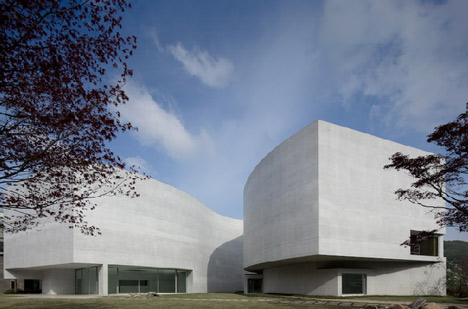
The interior has whitewashed walls and ceilings, and marble and timber floors on the ground and first floor respectively.
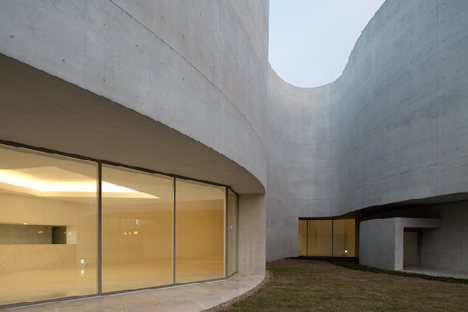
The exterior is pale grey concrete punctuated by steel-framed windows.
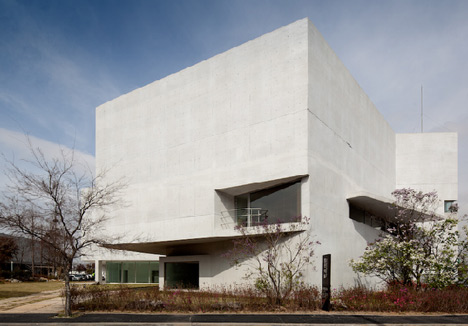
All photographs are by Fernando Guerra.
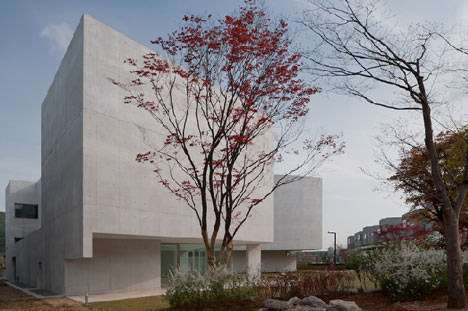
Here’s some more from the architect:
Mimesis Museum, Paju Book City, South Korea (2006 – )
A cat has become a museum.
There once was a chinese emperor who liked cats a lot, and one day he called upon the most famous painter in the Empire and asked him to paint him a cat. The artist liked the idea and promised that he would work on it. A year passed and the Emperor remembered that the painter still had not given him the painting of the cat.
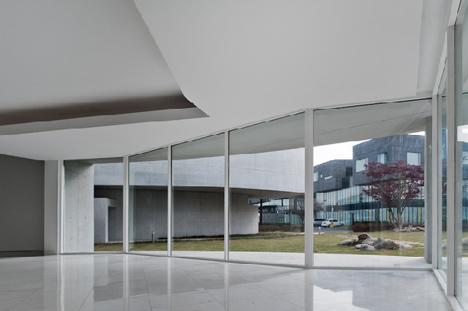
He called him: What of the cat? It is nearly ready, answered the artist. Another year went by, and another and another. The scene kept repeating itself. After seven years, the Emperor’s patience came to an end and he sent for the painter. What of the cat? Seven years have gone by.
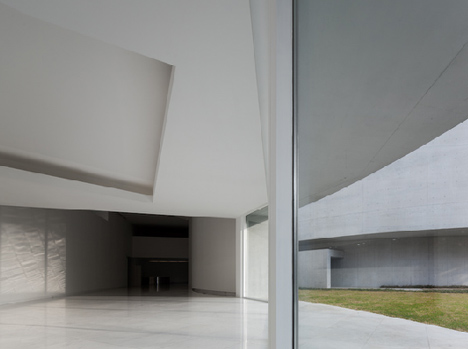
You have promised and promised but I still haven’t seen one! The painter grabs a sheet of rice paper, an ink well, one of those brushes like you can only get in the East and… in an elegant and sublime gesture he draws a cat, which was not just a cat but only the most beautiful cat ever seen.
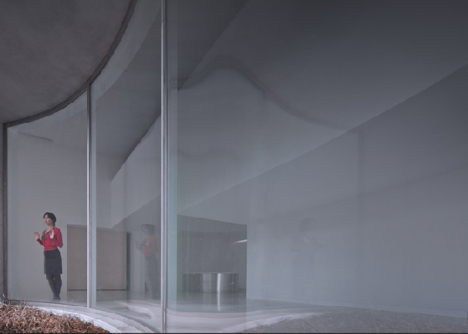
The Emperor was ecstatic, overwhelmed with such beauty. He did not neglect (which is no longer the case nowadays) to ask the artist how much he would charge for such beautiful drawing. The painter asked for a sum which surprised the Emperor. So much money for a drawing that you did in two seconds, in front of me? said the Emperor.
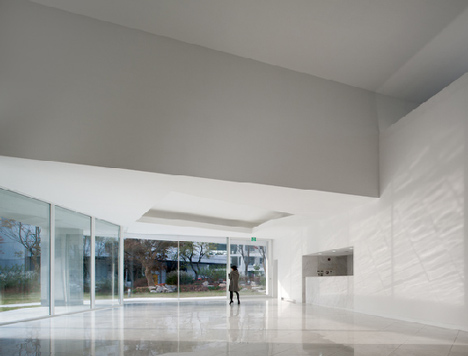
Yes Excellency, that is true, but I have been drawing cats for seven years now, replied the poor painter. The project for the Museum Mimesis, already under construction in the new town of Paju Book City in South Korea, is a cat. The client didn’t have to wait for seven years for his drawing of a cat, but Álvaro Siza has been drawing cats for over seven years now. He has never seen a Korean cat, because he has never been there.
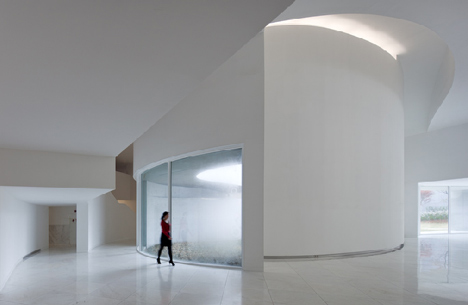
In one day I briefed him on the site, and brought along a small site model, showing the boundaries and the immediate context. In one single gesture, a cat was drawn. The Mimesis is a cat. A cat, all curled up and also open, that stretches and yawns. It’s all there. All you need to do is look and look again.
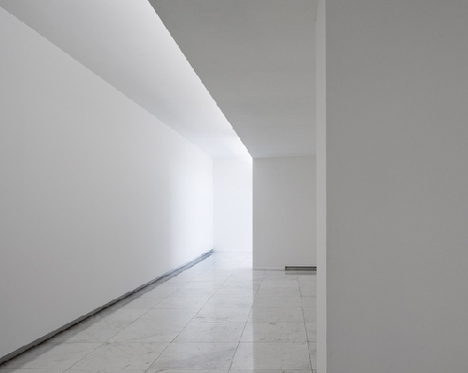
At first the design team members could not understand how that sketch of a cat could be a building. I have in my days seen many sketches of cats, and am always overwhelmed by them, can’t get tired of them. I want to see more cats, more sketches of cats, for several seven years have gone by. In architecture, after an initial sketch comes the torment.
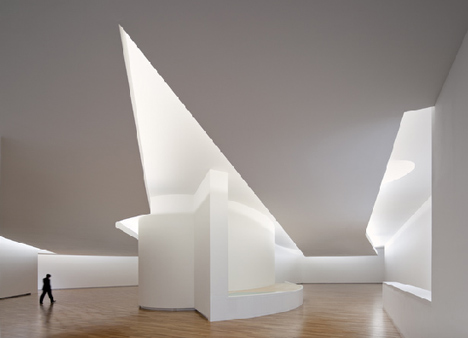
The initial design, models, drawings, corrections to these, doubts, new drawings, new models, a presentation to the client, who had already seen other projects but could not conceal his surprise at this one. Once approved, we progressed the project on through the usual steps, which in Korea are shorter and less bureaucratic. The brief has not been altered, but it is necessary to make some adjustments as part of the evolution process.
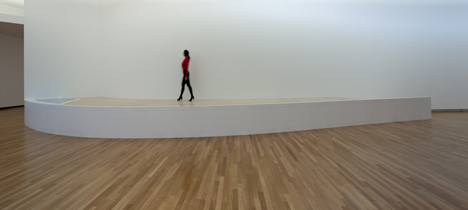
To think of materials, techniques, infra-structure, representational conventions, so that everyone understands, in an attempt to make everything work out. In the basement we will have the archives, the service area, maybe an extension to the exhibition area, as is becoming a habit in museums designed by Álvaro Siza. The ground floor is a space for arrival and distribution, areas for temporary exhibitions and a café/restaurant with all necessary back up.
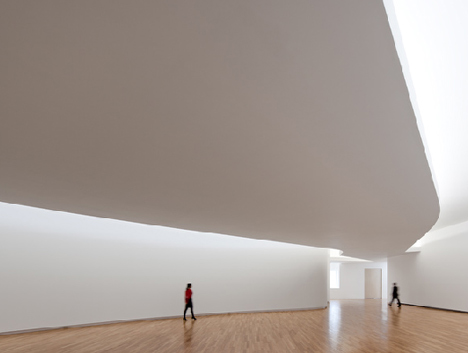
Administration areas, staff circulation, area for the administrative archive and staff toilets are located in the mezzanines. The top floor is for exhibition space. Light, always light, so carefully studied. Both natural and artificial is seen as essential.
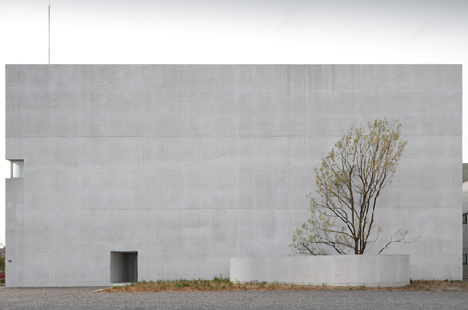
Allowing to see without being seen. Models and more models were constructed, some of which you could enter into.Also 3D images. Form will be given by cast concrete, light grey, the colour of a cat.
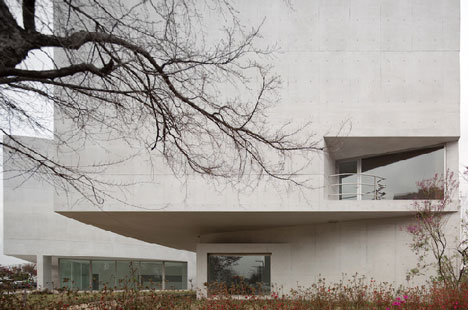
Inside, the white of the walls and ceilings, of the marble, which we hope will be from Estremoz and also the honey colour of Oak. Timber for the internal frames, and glass. As for the external windows, timber, painted steel and crystalline glass.
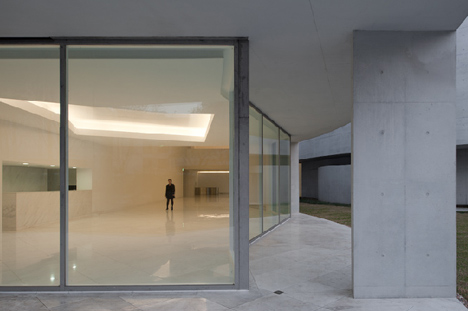
Project: Mimesis Museum
Client: Open Books Publishing Co.
Location: South Korea, Paju Book City
Design Period: 01.2006 / 09.2007
Construction Period: 10.2007 /
Client: Open Books Publishing Co.
Location: South Korea, Paju Book City
Design Period: 01.2006 / 09.2007
Construction Period: 10.2007 /
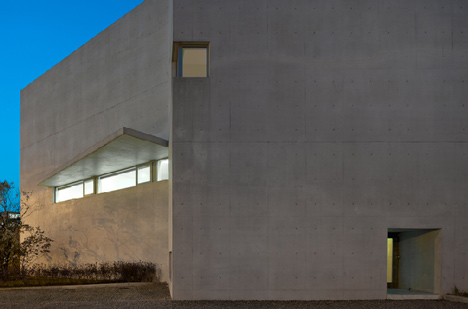
Architects: Álvaro Siza with Carlos Castanheira and Jun Sung Kim
Project Coordinator: Dalila Gomes
Construction Coordinator: Young-il Park
Collaborators: Chungheon Han; João Figueiredo (3D)
Structure: Gayoon ENC, Jungang Constructural Engineering Consultant
Project Coordinator: Dalila Gomes
Construction Coordinator: Young-il Park
Collaborators: Chungheon Han; João Figueiredo (3D)
Structure: Gayoon ENC, Jungang Constructural Engineering Consultant
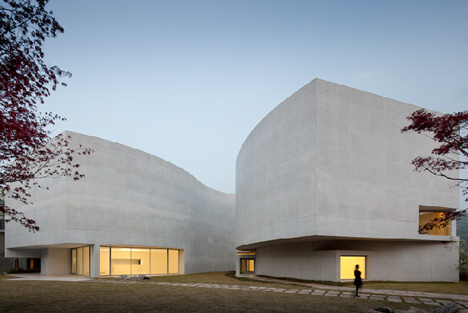
Mechanical Installations: Hansan Engineering Co.
Electricity: Jung-Myoung Engeneering Group Co.
Construction Company: Hanool Construction Co.
Model: Álvaro Negrelo
Photography: Fernando Guerra – FG+SG Fotografia de Arquitectura
Electricity: Jung-Myoung Engeneering Group Co.
Construction Company: Hanool Construction Co.
Model: Álvaro Negrelo
Photography: Fernando Guerra – FG+SG Fotografia de Arquitectura

No comments:
Post a Comment